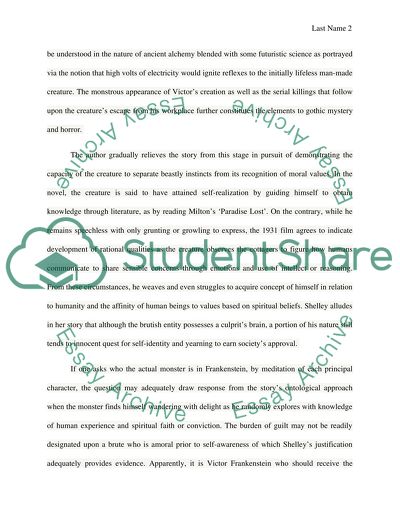Frankenstein (1818 Book) Research Paper Example | Topics and Well Written Essays - 1000 words. Retrieved from https://studentshare.org/philosophy/1441235-frankenstein
Frankenstein (1818 Book) Research Paper Example | Topics and Well Written Essays - 1000 Words. https://studentshare.org/philosophy/1441235-frankenstein.


